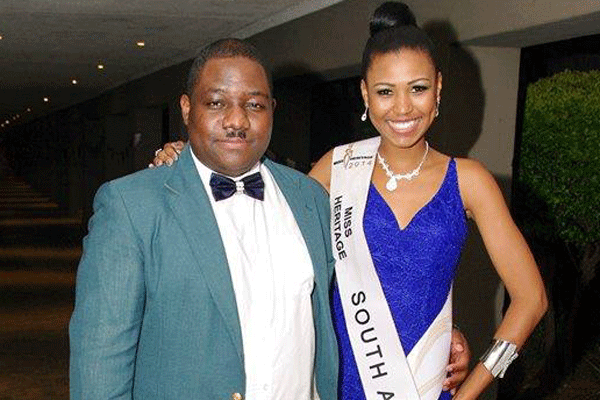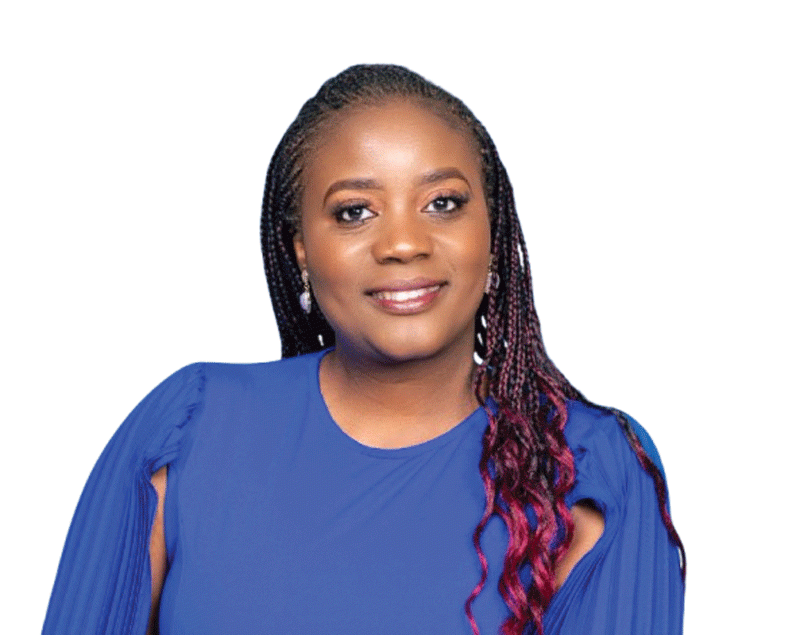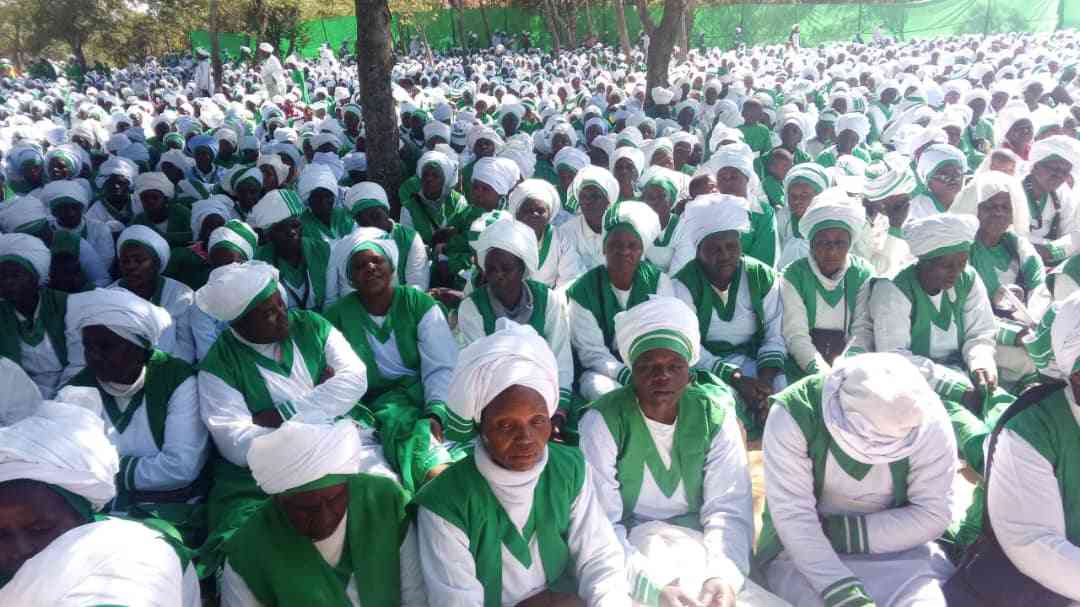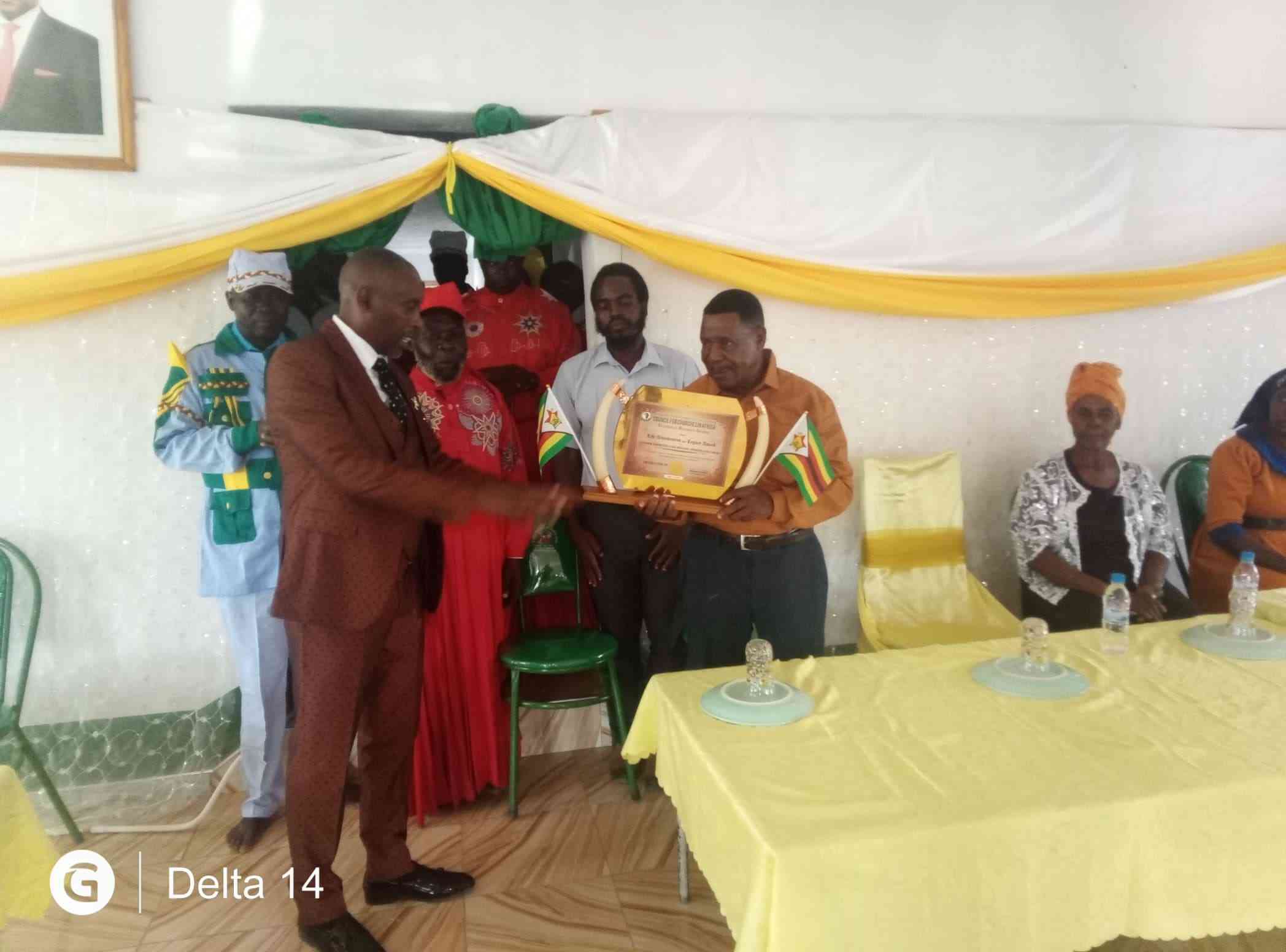
Founder and former president of the Miss Heritage pageant, Taremeredzwa Munzara is set to take his modelling expertise to the Philippines where he will host the inaugural international beauty pageant Miss United Countries pencilled for May 2017. The Standard Style reporter Winstone Antonio (WA) caught up with Munzara (TM), who shared his views about the local modelling sector, among other issues. Munzara also took a swipe at the Zimbabwean government for failing to provide support to the modelling industry. Below are excerpts from the interview.
the style interview By Winstone Antonio

WA: For how long have you been in the modelling industry?
TM: To be honest, I can say I am still green to pageantry compared to some seasoned people like Wilbert Rukato, Mercy Mushaninga and Judith Williams, who are my seniors in terms of years and experience. I got involved in the modelling industry when I was still at high school. I also organised the Miss Harare Junior pageant when I was a member of the junior council. After high school, I went to Malaysia where I launched my professional career as a modelling business person, so I can say it’s been eight years now, but my experience is a whole lot different compared to everyone in the industry since I am the only one running an international business model. In fact, I pioneered this in Africa.
WA: You were once the founding president of the Miss Heritage pageant before surrendering it to the South Africans. How is life after the Miss Heritage?
TM: My life has extremely improved ever since I exited from Miss Heritage. I believe that the exit gave me a platform to be more creative and so I went on to create new things in the modelling industry, which are actually generating revenue. So, I rose from the ashes because I had to start from scratch. I faced hard times and I must say, I overcame them. The heaviness of success was replaced with the lightness of being a beginner. A lot of people have read about me failing and I love that because actually, I was not failing. Instead, I was going through early attempted success. So, I know projects do not go well at times due to internal and external reasons and that is part of life.
WA: With your vast experience, how best can you describe the state of the local modelling industry?
TM: Our modelling industry is undeveloped and poor because we do not understand it. The government has no place for modelling and if you are not one of them, they do not care. Some government departments like the Ministry of Sport, Arts and Culture, have not made any move to assist the industry. I challenge the government to wake up and look into the modelling sector. There are fights and factions among those in the industry as we just cannot get along to speak and unify the industry. The current state of our modelling industry is just an informal sector which is clinging on to life in a die-hard state on life support. There is no codification or any set of rules to follow and so everybody does as they want. Modelling agents suffer to procure jobs for their models because of the bad economy. The corporate world is not eager to use models for commercials and even when modelling agents get jobs from clients, they take long to pay.
- Chamisa under fire over US$120K donation
- Mavhunga puts DeMbare into Chibuku quarterfinals
- Pension funds bet on Cabora Bassa oilfields
- Councils defy govt fire tender directive
Keep Reading
WA: Why are local pageant organisers failing to attract sponsors?
TM: First of all, the majority of corporates do not understand modelling, or should I say pageantry. A marketing manager will refuse to spend on a modelling event and will tell you “we do not sponsor modelling”, but the funny thing is they would be using models for their commercials. Secondly, people are not being creative enough to create good pageant concepts, usually sending poor proposals to sponsors. I have read some proposals from other pageants and I wondered if they were even serious, because sponsorship is an advertising and exposure deal and once the proposal is empty and it offers no value to the prospective sponsor, then it will not be approved. Another challenge is that if a pageant is not politically-linked, these corporates want some favours and they will not sponsor it. For example Miss World Zimbabwe, which is run by Marry Mubaiwa-Chiwenga, wife to Zimbabwe Defence Forces commander General Constantine Chiwenga, is sponsored by companies that have been claiming over the years that they do not sponsor modelling. I have seen them sponsoring because of the political connection, anticipating favours in future. So, how does a young pageant organiser from Mabvuku get sponsors when people are biased and pledge their sponsorship based on political lines or social background? If you are not known, you are doomed and you will produce a shoestring event, but what is important after all is the dream materialising with or without resources.
WA: We seem to have a number of models, but very few have succeeded in their careers. What might be the reason?
TM: I cannot say we have a lot of models. We just have tall and photogenic girls who have not received any modelling training. It is just false evidence appearing real. I always say you can look the part, but for you to become the part, you require training, because talent without skill and hard work will never guarantee success. The ones that have succeeded are in South Africa or in other countries; you cannot survive on modelling in Zimbabwe, sadly. So the few that have made it, of which they are a handful, they trained for it. One of the worst situations we have locally is that some of the agencies do not even know what they are doing and lack the professional knowledge and course structure to train. So, it means that the end-product would not be up to standard. If a prospective model is not well-equipped, then they will not succeed.
WA: Research has shown that in other countries like South Africa, the modelling sector is a billion-dollar industry yet the reverse is true for Zimbabwe, why?
TM: Oh yes, in South Africa it is basically about lifestyle as they really take it seriously and its professional, I experienced it. They also have legislation and a functional modelling association that further allowed them to grow into a professional industry. The job done by a model in Zimbabwe for $100 is done for $2 000 by a model in South Africa. That’s how the difference is like. If clients pay peanuts, there is no revenue growth in the industry. It is not motivating that these corporates make thousands of dollars over an advert yet they could have paid very little for it. I know a lot of models in South Africa, who survive on modelling — living large — and I know a lot of Zimbabwean models who are struggling financially. Another thing is the economy itself; the South African market is competitive, so there are always promotions and commercials. The use of models in the South African economy is very high compared to Zimbabwe. If you look at South Africa, they have lots of pageants, which means that sponsors get to understand them and can place their money into pageants. Locally, we wait for one pageant all year, that is if it ever happens. We need more pageants.
WA: How far true are reports that pageant organisers and other influential figures in the industry are in the habit of seeking sexual favours from models in exchange for winning pageants?
TM: It happens all over, even here in the Philippines. It happens in South Africa and it happens in America. I think it’s rampant in pageants because the beautiful women would be targets for sex in exchange of promotions. These are just not reports, it actually happens and take note that most of the pageant participants are fake and usually would not be women of integrity, so when two crooks meet, they rob each other — the model getting the title, the sponsor or organiser getting sex. I think it is disgusting, but we cannot stop it, this one has no solution, it is the same as the political sponsorship and favours.
WA: So what do you think must be done to end such disgusting behaviour to improve the credibility of these pageants?
TM: I don’t think this can be stopped, it is just like crime. We can reduce it if we have modelling codification, in terms of conduct regulations for example, run by a governing body which will put tight screws. But if the organiser is a crook, he would do as he wants because sex is for two people, and we will never know of it. Aspiring models must be educated and that’s only if they enrol at agencies or modelling schools so that they get mentorship.
WA: There have been claims of racism in the modelling industry. How far true are these allegations?
TM: It’s true, racism exists in this modelling industry and I am a victim of such among a number of black contestants and national directors. Most white, coloureds and Asian models do not want to sign for agents or pageants run by black people as they prefer white-owned modelling agencies. I believe the market place must not be based on skin colour, but this is actually happening. It is sad that black models do not get booked much and if they do, it would be for jobs of no value. Usually corporates shockingly pay more for white models, it is like we are back in Rhodesia again, but this time the Rhodesia is hidden.
WA: How do you rate the Philippines’ modelling sector?
TM: I have travelled to so many countries and for my three-month stay here, I can rate Philippines as being among the best pageant countries. My observation is that the number of people that love and understand pageantry, determines the demand and the circulation of resources within the industry. Compared to Zimbabwe, there is no demand at all, and it is costly to organise a pageant here. Imagine the stage production company would want you to pay a huge price for the stage, lights, sound and screens. In other countries it is very cheap and so that’s why they have good productions. A good production attracts people.
WA: Your parting remarks?
TM: I believe that there is a lot of work to be done by us as a country. We need to assist each other to grow the industry and policy makers must start doing their job by not neglecting something that can bring the gross domestic product. We have to unite as Zimbabweans, regardless of our political affiliations and cultural beliefs for the growth of the modelling sector, so that it can also be a billion-dollar industry.










